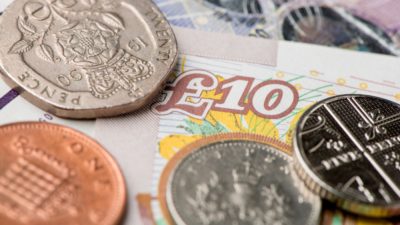In retirement, I think ideally you should have your essential costs — plus whatever discretionary lifestyle expenditure you feel is the minimum for contentment — covered by reliable income. This would include the State Pension, and any other pension or guaranteed source of income.
I think it’s also prudent to keep a rainy day cash fund in an instant or easy-access account for emergencies.
If you have these things in place, and still have surplus cash — say £20,000 — the question is what to do with it. In this article, I’ll explain why I’d opt for a Stocks and Shares ISA over a Cash ISA and tell you about the sort of stocks I’d invest in.
Big difference
The return on cash is pitiful at the moment. And this is unlikely to change any time soon. Interest rates are expected to remain low for the foreseeable future. The best easy-access Cash ISA I can find pays just 1.3%. And you don’t get much better on a five-year, fixed-rate job at 1.7%.
So the most annual income you can earn on your surplus £20k is a mere £340. It’s something. But that’s about all that can be said of it. By contrast, there are currently numerous companies on the stock market offering dividend yields of 5% or more. A 5% yield on your £20k equates to £1,000. That’s more like it.
And, of course, if we talk about multiples of £20k, the difference between the Cash ISA and Stocks & Shares ISA becomes even greater. For example, with £100k, the interest on cash would be £1,700 versus £5,000 for the stocks and shares holder.
Dividends
Dividends from companies aren’t guaranteed. However, many have explicit policies of aiming to increase the payout each year, and many succeed in doing so. From time to time, some have to rebase their dividend to a lower level. For example, if they go through a period of difficult trading, and are making lower profits.
Generally, though, I think a portfolio of handpicked dividend stocks is well capable of providing an overall growing passive income, even if there come to be some rebasers in it. Of course, the fewer of these you have the better. This is where stock selection comes in.
Stocks portfolio
I think a portfolio of between 10 and 20 stocks is probably ideal. And with a Stocks and Shares ISA of £20k, the dealing costs on buying up to 20 stocks are reasonable.
I’d stick largely to blue-chip FTSE 100 companies, and diversify across different industries. I’d want a good core of businesses whose earnings tend to be relatively resilient through the economic cycle (even if some have sub-5% yields).
These would include the likes of British American Tobacco (current yield 7.1%), defence specialist BAE Systems (4.1%), big pharma firm GlaxoSmithKline (5%), utilities National Grid (4.8%) and SSE (5%), supermarket Tesco(4%), and consumer goods group Unilever (3.5%).
To these I’d add some of the heavyweight companies in more cyclical sectors, such as HSBC (8.1%), ITV (8%), and Shell (8.8%). The average yield of this set of 10 companies is 5.8%.
Final word
As I say, dividends aren’t guaranteed. Over a retirement period of maybe 20 years, there’ll almost certainly be some rebasing. However, I think such a stocks portfolio has every chance of providing a high passive income that knocks spots off interest on cash.
Just ignore the fluctuations in the capital value of the portfolio, and enjoy the juicy dividends!







